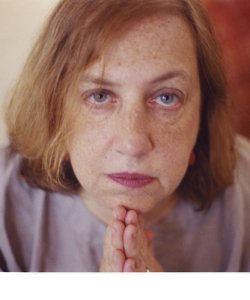Tracy K. Smith on Poetry in the Technological Age, Summer Reading, and More
A study on the difference between owning a print book versus an e-book; Elena Ferrante on reading and insomnia; how to read autofiction; and other news.
Jump to navigation Skip to content
A study on the difference between owning a print book versus an e-book; Elena Ferrante on reading and insomnia; how to read autofiction; and other news.
“I think something like garage or grime or rap, hip-hop, appeals to me because they’re very metrical, rhyme-based forms.” Zambian British poet Kayo Chingonyi talks about his path to poetry, his interests and influences, and internationalism and Anglophone literature for Writers’ Centre Norwich. Chingonyi won the 2018 International Dylan Thomas Prize for his debut poetry collection, Kumukanda (Chatto & Windus, 2017).

New York City–based independent press Four Way Books celebrates twenty-five years.
Accountant at literary agency accused of embezzling $3.4 million; the New Yorker profiles Chimamanda Ngozi Adichie; inside the London offices of the Times Literary Supplement; and other news.
“To start with two lines then in black and white / and continue to see a way in them.” So begins Michael Joyce’s collection Biennial (BlazeVOX, 2015), which is comprised entirely of two-line poems. As Joyce explains in the introduction of his book, he decided to write one two-line poem per day, every day, for two years. This week, try writing your own two-line poems, one per day, and observe how they relate to each other. Perhaps the poems combine into a larger sequence or each stands alone. If this daily habit feels generative, keep going for a full month!
As we head into the holiday weekend, consider submitting to these writing contests, all of which are given for stories, groups of poems, and essays. Each contest offers an award of at least $1,000 and publication and has a deadline of June 1.
American Short Fiction Halifax Ranch Fiction Prize: A prize of $2,500 and publication in American Short Fiction will be given annually for a short story. ZZ Packer will judge. Entry fee: $20.
Boston Review Poetry Contest: A prize of $1,500 and publication on the Boston Review website is given annually for a poem or group of poems. Mary Jo Bang will judge. Entry fee: $20.
Boulevard Emerging Poets Contest: A prize of $1,000 and publication in Boulevard is given annually for a group of poems by a poet who has not published a poetry collection with a nationally distributed press. The editors will judge. Entry fee: $16.
Southern Humanities Review Auburn Witness Prize: A prize of $1,000 and publication in Southern Humanities Review is given annually for a poem of witness in honor of the late poet Jake Adam York. The winner also receives travel expenses to give a reading at Auburn University in Alabama in October with the contest judge; this year's judge is Camille T. Dungy. Entry fee: $15.
Writer’s Digest Annual Writing Competition: A prize of $5,000, publication in the 87th annual Writer's Digest Competition Collection, and an all-expenses-paid trip to the Writer's Digest Conference in New York City to meet one-on-one with four agents or editors is given annually for a poem, a short story, or an essay. Four prizes of $1,000 each and publication in the Writer's Digest Competition Collection will also be given for a rhyming poem, a non-rhyming poem, a short story, and an essay. Entry fee: $25–$35.
Visit the contest websites for complete guidelines, and check out the Grants & Awards database and Submission Calendar for more contests in poetry, fiction, and creative nonfiction.
Michelle Obama releases cover of memoir; Porochista Khakpour starts digital zine for offbeat writing; children’s author Richard Peck has died; and other news.
The National Book Foundation announces expansion of public programming; a poetry correspondence between Natalie Diaz and Ada Limón; shortlists for Forward Prizes for Poetry announced; and other news.
Marjory Stoneman Douglas High School students to publish anthology with Random House; romance novelist and lawyer Stacey Abrams wins Democratic primary in Georgia gubernatorial race; Sylvia Plath’s undergraduate thesis on doppelgängers; and other news.
Submissions are currently open for the Gaudy Boy Poetry Book Prize. A prize of $1,000 and publication by Gaudy Boy, an imprint of the literary nonprofit Singapore Unbound, will be given annually for a poetry collection by an Asian writer. Poet and artist Wong May will judge.
The contest is open to emerging and established Asian poets residing anywhere in the world. Submit a manuscript written in English of 50 to 100 pages with a $10 entry fee by May 31. Visit the website for complete guidelines. Five finalists will be announced in August, and the winner will be announced in September.
Established in 2017, Gaudy Boy publishes “poetry, fiction, and literary nonfiction of extraordinary merit by Asian voices.” The inaugural title is Alfian Sa’at’s story collection Malay Sketches.
To learn more about Singapore Unbound, read Melynda Fuller’s article on the organization from the March/April 2017 issue of Poets & Writers Magazine.